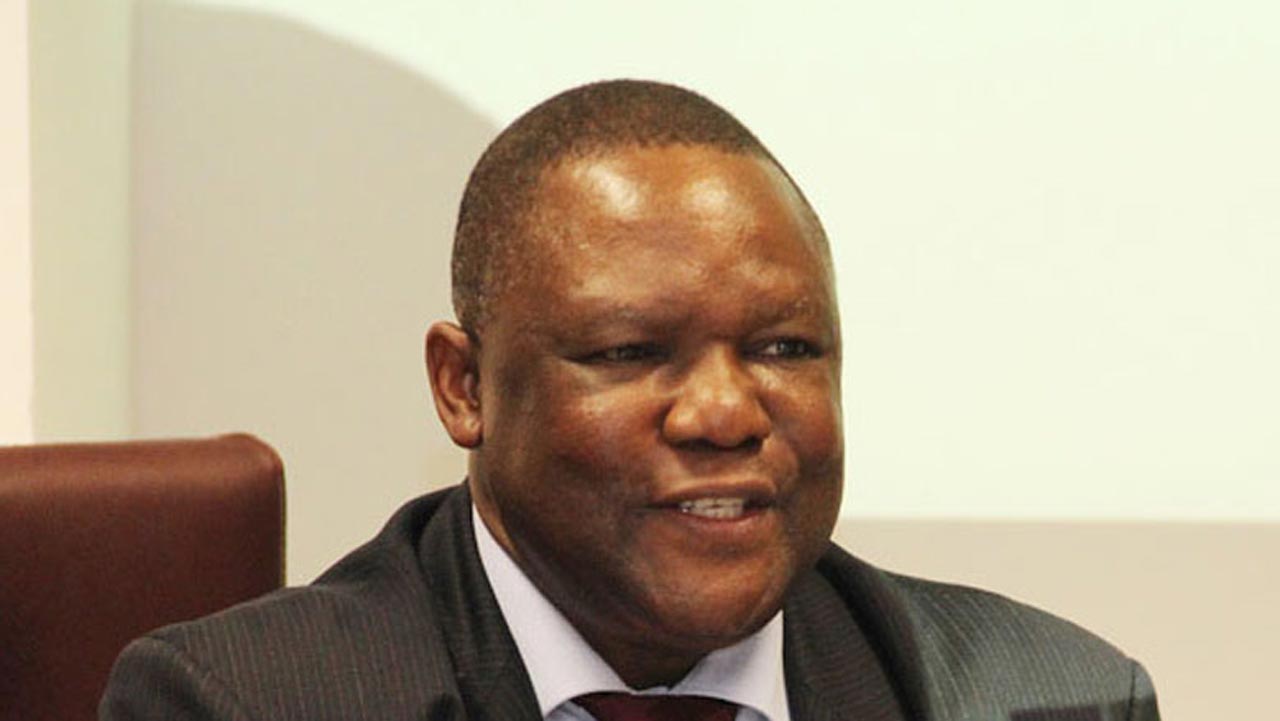Pic.4. A policemn arrests an overloaded vehicle and discharges its passengers for not wearing facemask, in Jos on Wednesday (17/6/20).
02883/17/6/2020/Sunday Adah/BJO/NAN
As Nigeria continues to channel funds to contain the spread of coronavirus, enforcement of safety protocols has been a challenge. TheCable took a tour across the country to examine compliance with the protocols in government offices and other public places and discovered that despite the availability of face masks, thermometers, hand washing units, sanitisers, many are not safety conscious.
IN LAGOS: COMPLIANCE IN GOVT OFFICES, ‘ANYTHING GOES’ IN MARKETS
At the entrance of the state secretariat in Alausa, a team of security operatives checked visitors who thronged the complex when TheCable visited. Those without face masks were asked to wear one or declined entry into the premises. There was also strict compliance with COVID-19 protocols before one could gain entry to the governor’s office. The same rules were strictly adhered to in health centres across the state.
At the immigration office in Ikeja, the number of visitors allowed into the building was reduced with security officials ensuring only people with genuine business concerns were allowed in. Visitors were mandated to use face masks and use the hand washing spots at the entrance before proceeding to the offices.
Despite the low turnout at the popular Ikeja Mall, security officials on duty ensured that anyone who wished to enter the premises used a face mask. However, for markets, it was a different scenario as safety rules were flouted.
Advertisement
With over 18,000 cases and 200 deaths, Lagos has the highest number of coronavirus cases in Nigeria.
DEFIANT OYO GOVERNMENT WORKERS
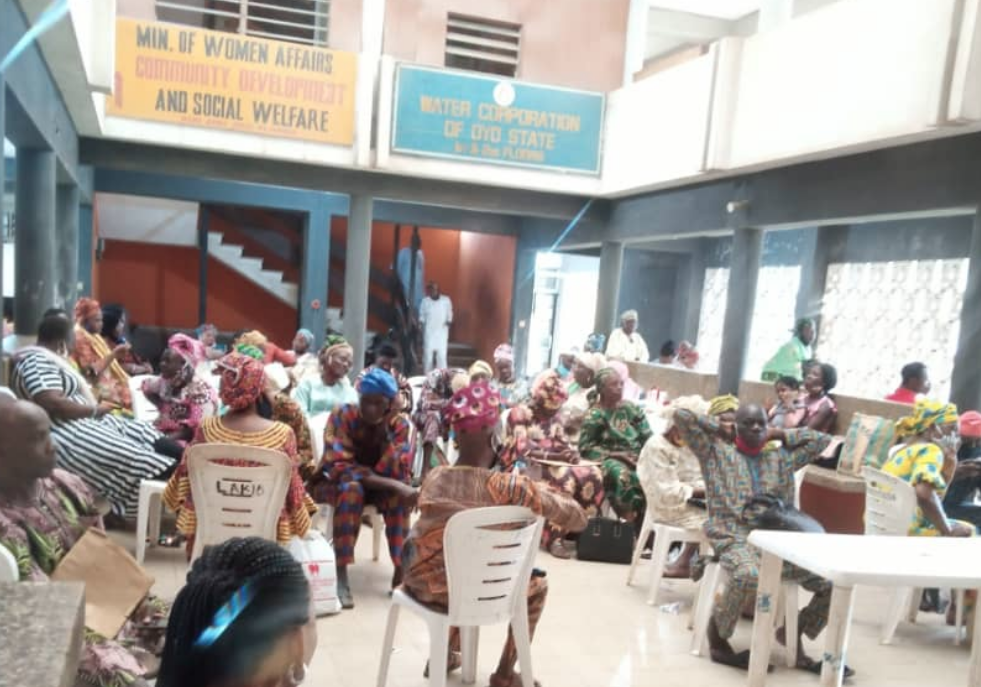
Despite being on the list of top five most affected states in Nigeria, with 3,139 cases and 37 deaths as of September 4, 2020, residents of Oyo seem not to mind as there is widespread reluctance to comply with COVID-19 protocols. In fact, parties are held across the state with large crowds in attendance, while local football competitions have resumed.
At the Oyo state secretariat in Ibadan, the situation was no different for workers and visitors. Although big banners were placed at the entrances of the secretariats and offices, with the warning, “no face mask, no entry”, this turned out to be mere inscriptions as no one obeyed them.
Advertisement
When TheCable visited the building housing the state water corporation and ministry of women affairs, people moved about freely without being subjected to temperature checks or compelled to wash their hands in the basins placed at the entrance to the building.
At the reception hall within the building, a meeting was held for a group of people with all the participants either hanging their face masks below their chins or not having one at all. At the main canteen popularly called “bush”, the protocols were non-existent. Women who cooked had no face masks on while those who served the food did not wear any.
IT’S A SEASON OF PARTIES
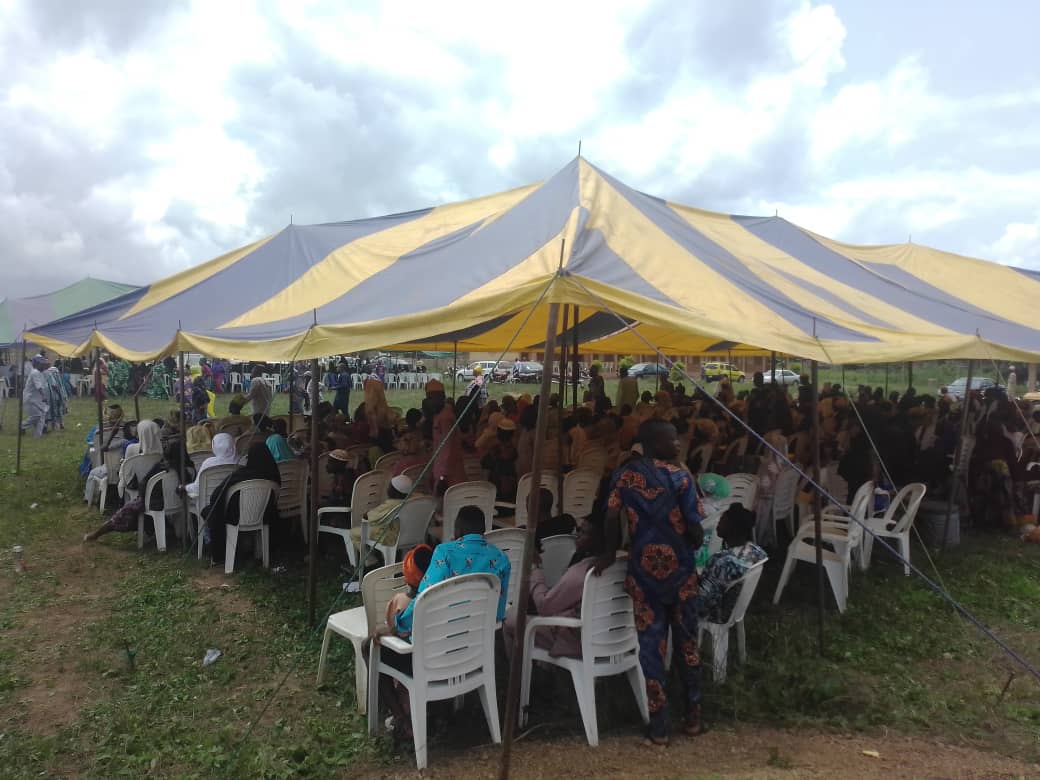
In the first weekend of August, six wedding ceremonies held in Okeho, Kajola local government area of Oyo. TheCable observed that all the parties were attended by large crowds with no regard for face mask usage or physical distancing. A funeral ceremony also held in the town with a huge crowd. In Olodo area of Ibadan, a big wedding ceremony was attended by prominent politicians in the state.
Despite the ban on sporting activities, football games have returned in Oyo. In Kajola and Atisbo council areas of the state, local competitions have resumed. TheCable witnessed one of the games between Kishi FC and Arsenal FC of Igboho. The second match of the day was between Ago-Are United and Saki United.
Advertisement
When asked about the monitoring strategy of the state to ensure safety compliance, Olanike Adeyemo, deputy vice chancellor of the University of Ibadan and team lead, Oyo state COVID-19 decontamination and containment committee, said a statewide project had been developed to improve compliance with precautionary protocols, which she said had been “abysmally low”.
‘NO CORONAVIRUS IN OSUN’
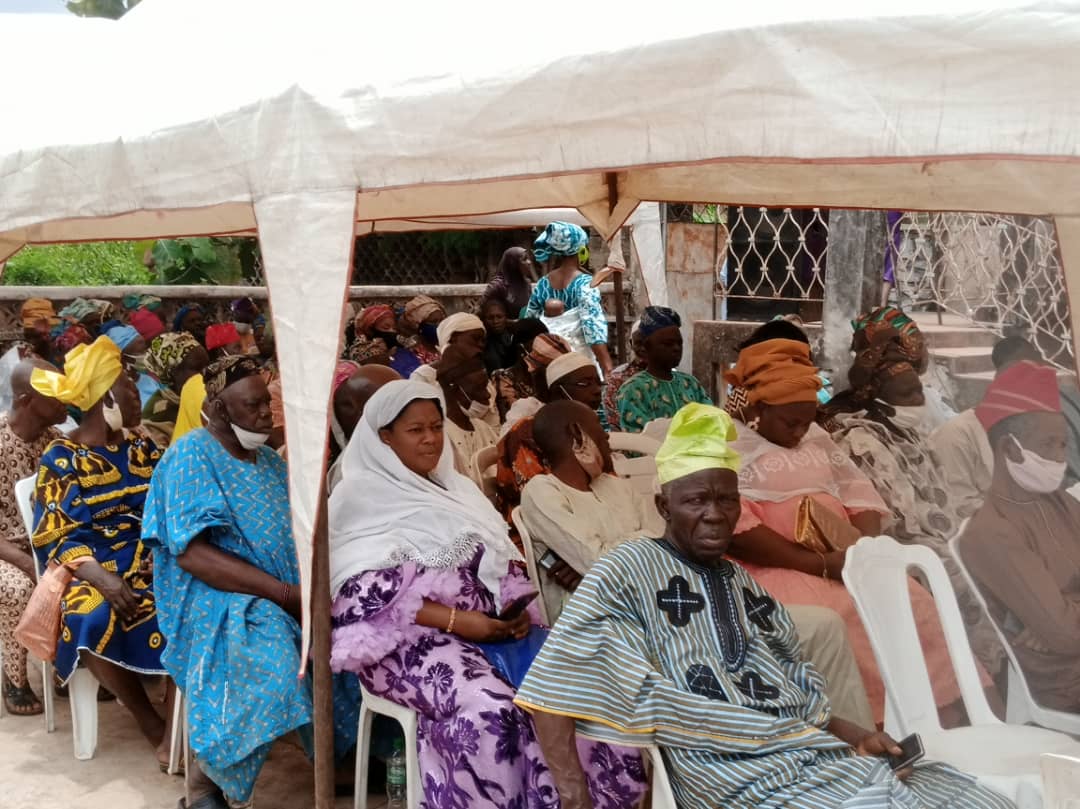
Perhaps because of the low cases recorded in Osun, many people in the state believe COVID-19 no longer exists. TheCable was in Ibokun, near Osogbo, the state capital, and witnessed a burial ceremony held in honour of a prominent woman in the town. When asked if the family was aware of COVID-19 precautionary protocols which forbids large gathering, one of the children of the deceased said coronavirus no longer exists.
IN EDO, SAFETY PROTOCOLS ARE LARGELY IGNORED
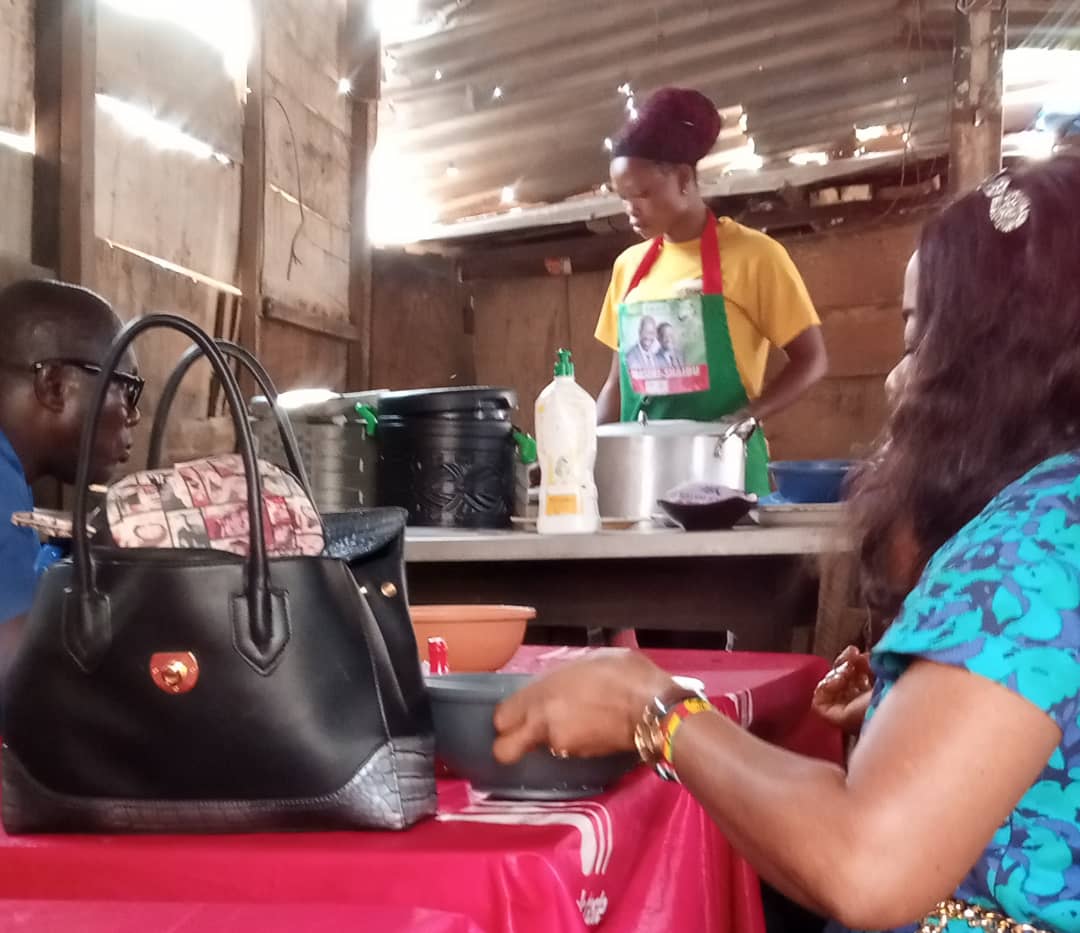
In Benin, Edo state capital, the compliance level among the people and government staff is also low. From the bus terminus to the government house and the secretariat, there seems to be a mutual agreement not to comply with the protocols.
Edo is ranked fifth among states with the highest number of COVID-19 cases. Oredo council area, with Benin as its major city, has the largest number of the cases with over 700 people infected out of more than 4,000 suspected cases.
Advertisement
When TheCable visited the state government house in Benin, emphasis on COVID-19 protocols was almost absent. The hand washing facility provided was not used by visitors entering the premises.
At the state secretariat, all the offices had the face mask warning on their doors but many of the workers didn’t have them on. The exceptions were some of those who came for staff identification exercise.
Advertisement
At a makeshift canteen overlooking the main building within the secretariat complex, none of the food vendors complied with the protocol.
Crusoe Osagie, special adviser to Edo state governor on communication and strategy, told TheCable that the state is facing a major challenge in enforcing COVID-19 safety measures in public places.
Advertisement
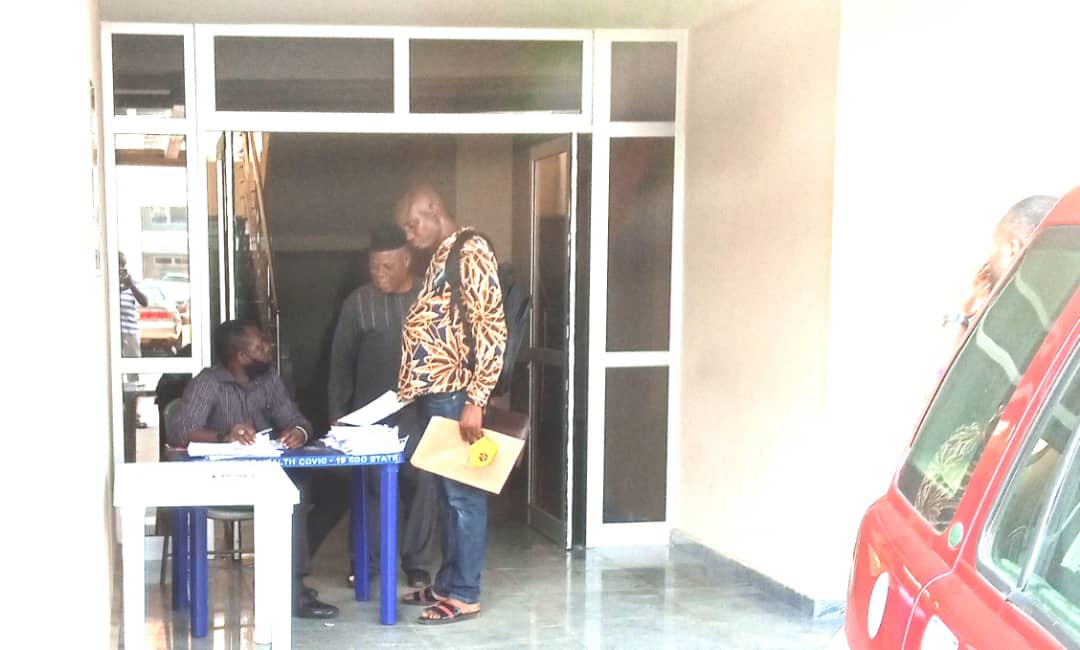
“I am the chairman of the communication pillar of COVID-19 response in the state. The biggest challenge is communicating the dangers of the virus to our people. People are not paying attention to the warnings despite all the government’s efforts. They think the virus is not as dangerous as we try to make them see it. We use persuasion and in some cases, force,” he said.
“Right now, the virus has changed peoples’ lives. Many have imbibed the culture of washing their hands. They may not do it in offices but when they go back to their houses, they do it. Have the people complied as much as we expected? The answer is no. But have they adjusted the way they live in the context of COVID-19? The answer is yes.”
Advertisement
When asked if the government was aware that in public places like the bus parks, compliance level was almost zero, Osagie said the state government would continue with its enlightenment programmes.
IN ANAMBRA, THINGS HAVE RETURNED TO NORMAL
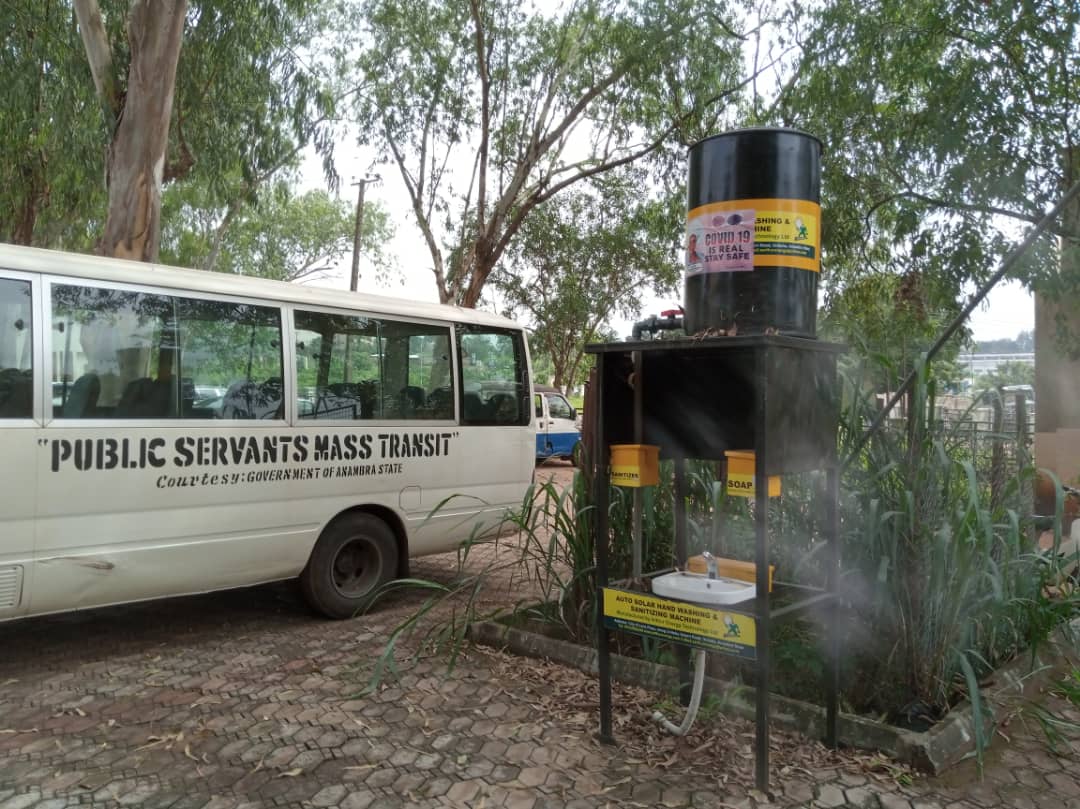
The bold instruction at the entrance of Anambra from Delta, shortly after the recently renovated the Niger bridge, reads “Stay Safe”, but apparently, people living in Onitsha do not seem to be guided by the warning. The crowded yellow and black commercial minibuses and the buzzing commercial activities in the markets depicted complete disregard for safety rules for the prevention of the spread of the virus.
At the foot of the Niger bridge, Anthony Williams, who hired a bus to transport his goods to Lagos, told TheCable that despite COVID-19, it would be difficult to stop commercial activities in Onitsha.
“Onitsha is a commercial city and it will be hard for the people to adjust to a new life of extreme restrictions because of COVID-19. If the virus is real and deadly, I think they have been lucky in Anambra state. In fact, Nigeria has been lucky. The truth is that the prescribed protocols are not obeyed in this state, or at least in Onitsha,” he said.
The solar-powered hand washing unit stationed at the two gates leading to the state secretariat in Awka are the only sign that the state government takes the issue of COVID-19 containment seriously. But walking through the gate and into the corridors of the offices unchallenged even without a face mask showed that the protocols are not adhered to.
Efforts of TheCable to get the reaction of the state government on its enforcement activities did not yield any result. Vincent Okpala, the state commissioner for health, did not pick several calls put through to his mobile telephone line or respond to text messages.
VARYING LEVEL OF COMPLIANCE IN KADUNA
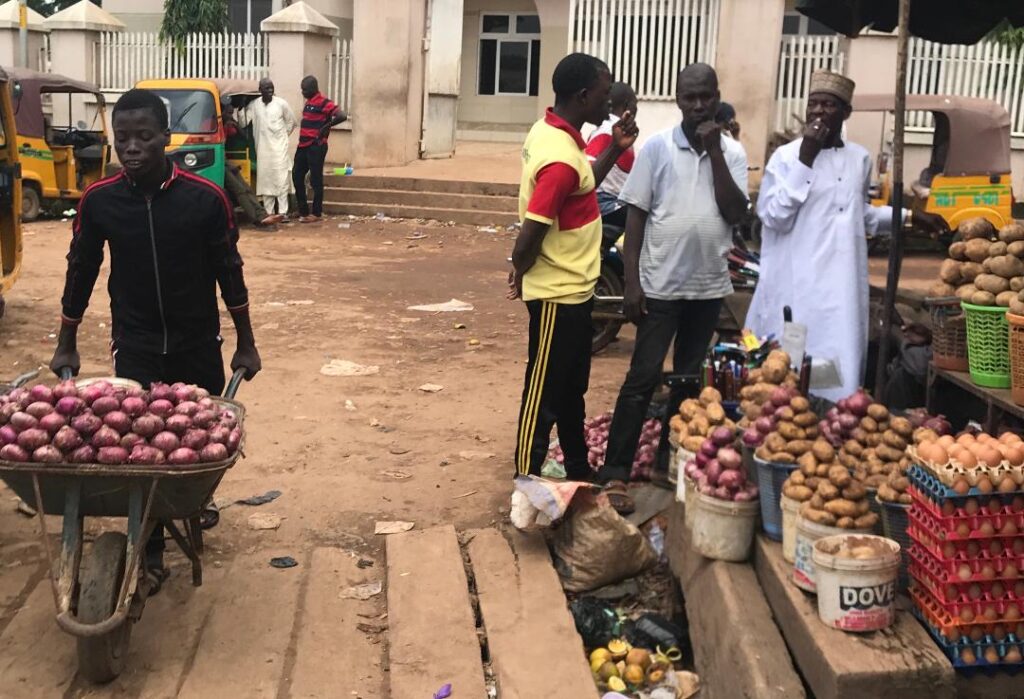
Despite being among the top 10 of the states most affected by COVID-19 in Nigeria with over 2,000 cases, there is little or no compliance with the COVID-19 protocols in Kaduna state.
In government offices, markets and other public places, many people no longer adhere to the protocols, especially the wearing of face masks. At the federal secretariat in Kawo, civil servants and visitors ignored all safety protocols during the time TheCable visited. There were no hand washing units. Hand sanitisers and thermometers were also unavailable.
The story was, however, different at the Kaduna state government secretariat and offices of its agencies. There is high level of compliance with the protocols. In all the ministries visited, provisions were made for hand washing.
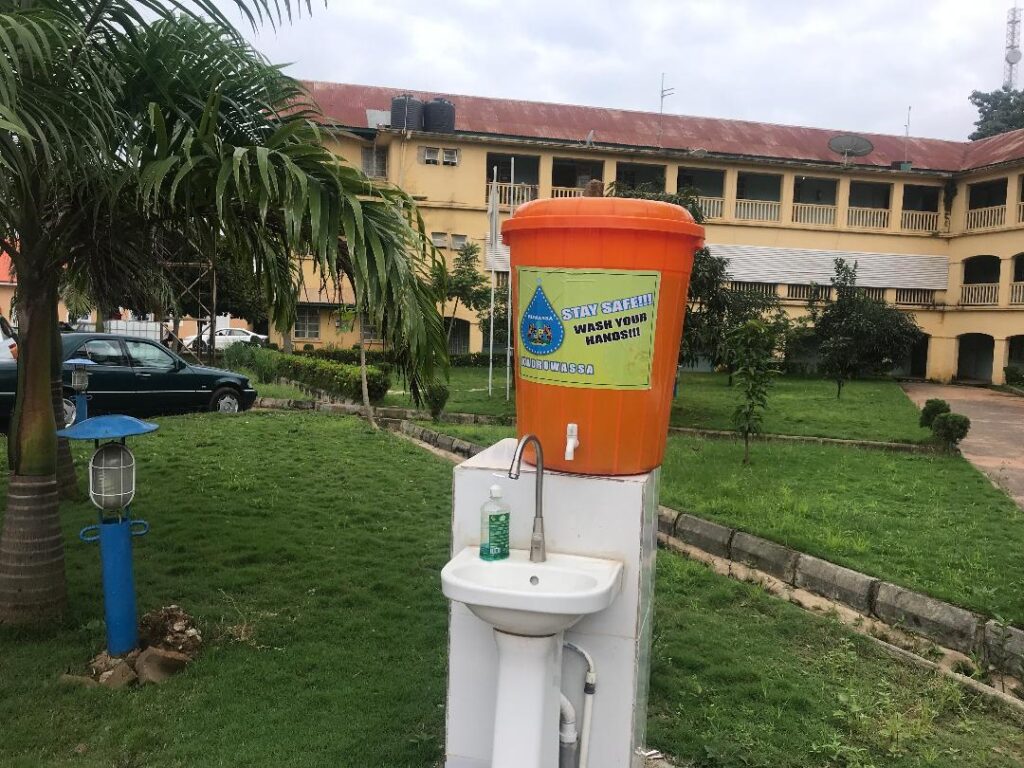
At the station market, most of the traders did not wear face masks. A few of them hung their masks around their chins probably to escape arrest by officers of the state task force on COVID-19. In Kaduna, fine for not wearing mask starts from N5,000 but there are many offenders who have not been arrested.
Amina Mohammed-Baloni, the commissioner for health, was said to be in a meeting when TheCable visited her office for comments on addressing compliance level in Kaduna.
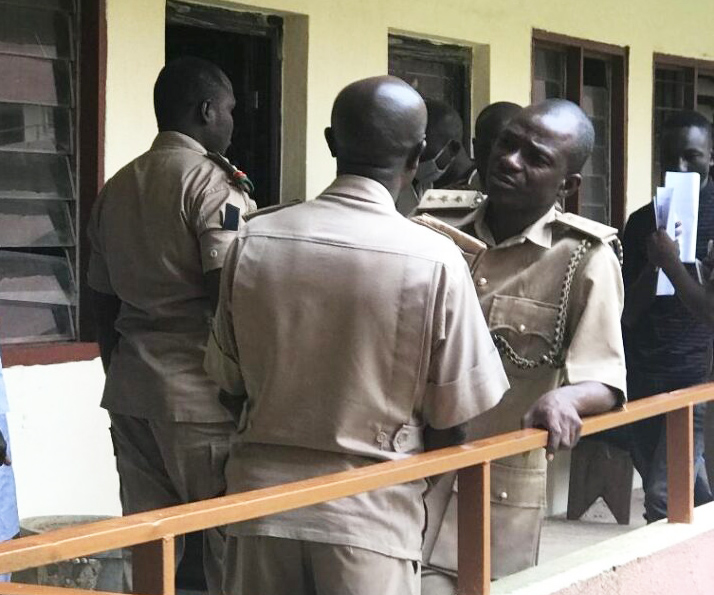
IN ABUJA, COMPLIANCE LEVEL IS LOW
At the ministry of health headquarters in Abuja, staff resumed work without face masks while visitors without face masks were allowed in.
A hand washing bowl kept by the main door had no water and looked dirty, suggesting that it had not been in use for some time. Along the corridors and in some offices, there were no provisions for hand washing or for individuals to sanitise their hands.
The situation was the same at the national assembly complex and ministry of education but the situation appeared to be worse at the ministry of police affairs. A member of staff told TheCable that there was no protocol in place. The only exception was at the federal courts where visitors were compelled to follow the protocols before entering and while in the court premises.
Ben Goong, director, press and public relations at the ministry of education, denied that workers were not following COVID-19 guidelines even when pictures were presented as evidence.
“You cannot sit somewhere and concoct stories. Stop this blackmail. Those pictures you took are from elsewhere, not from the ministry of education,” he told TheCable.
Similarly, Olujimi Oyetomi, spokesman of the federal ministry of health, also denied non-compliance with safety protocols at the ministry.

Safety protocols were ignored at other public places visited, including motor parks, shopping malls and markets.
“I was at work that Tuesday and Wednesday morning and there was a temperature check on me. Even the minister goes through the process,” he said.
Additional reports by Taiwo Adebulu and Chinedu Asadu
This is a special investigative project by Cable Newspaper Journalism Foundation (CNJF) in partnership with TheCable, supported by the Open Society for West Africa Initiative (OSIWA). Published materials are not views of OSIWA.
Add a comment

